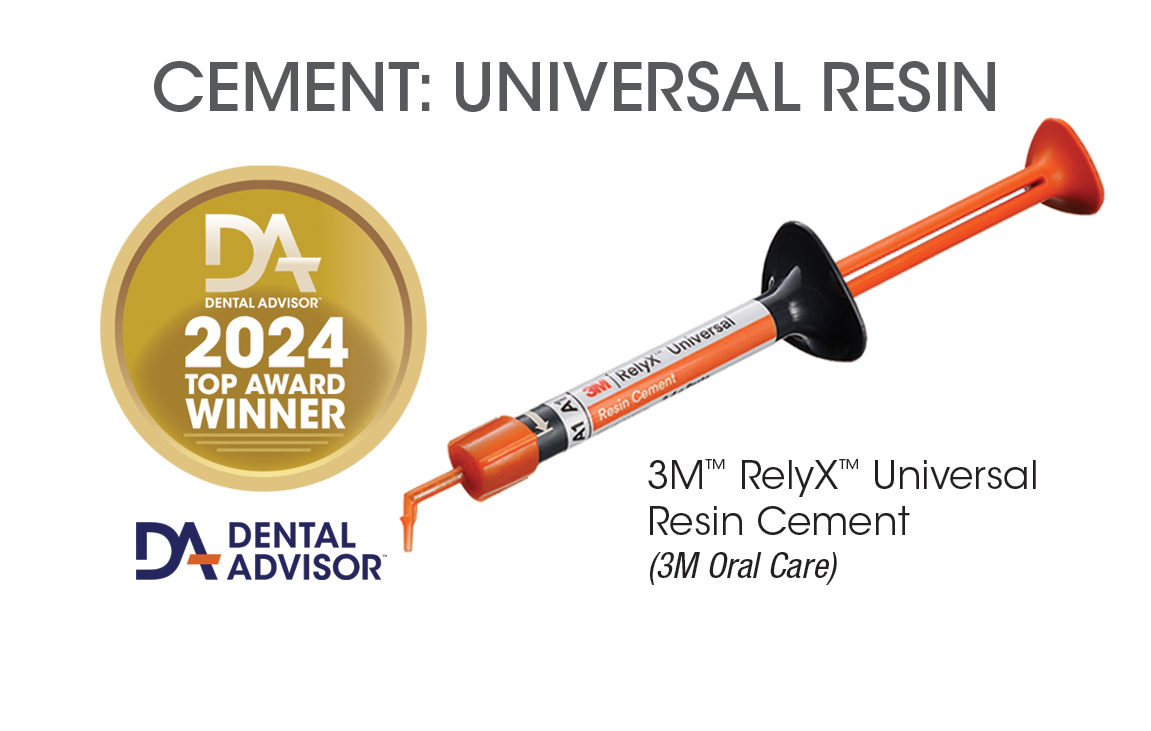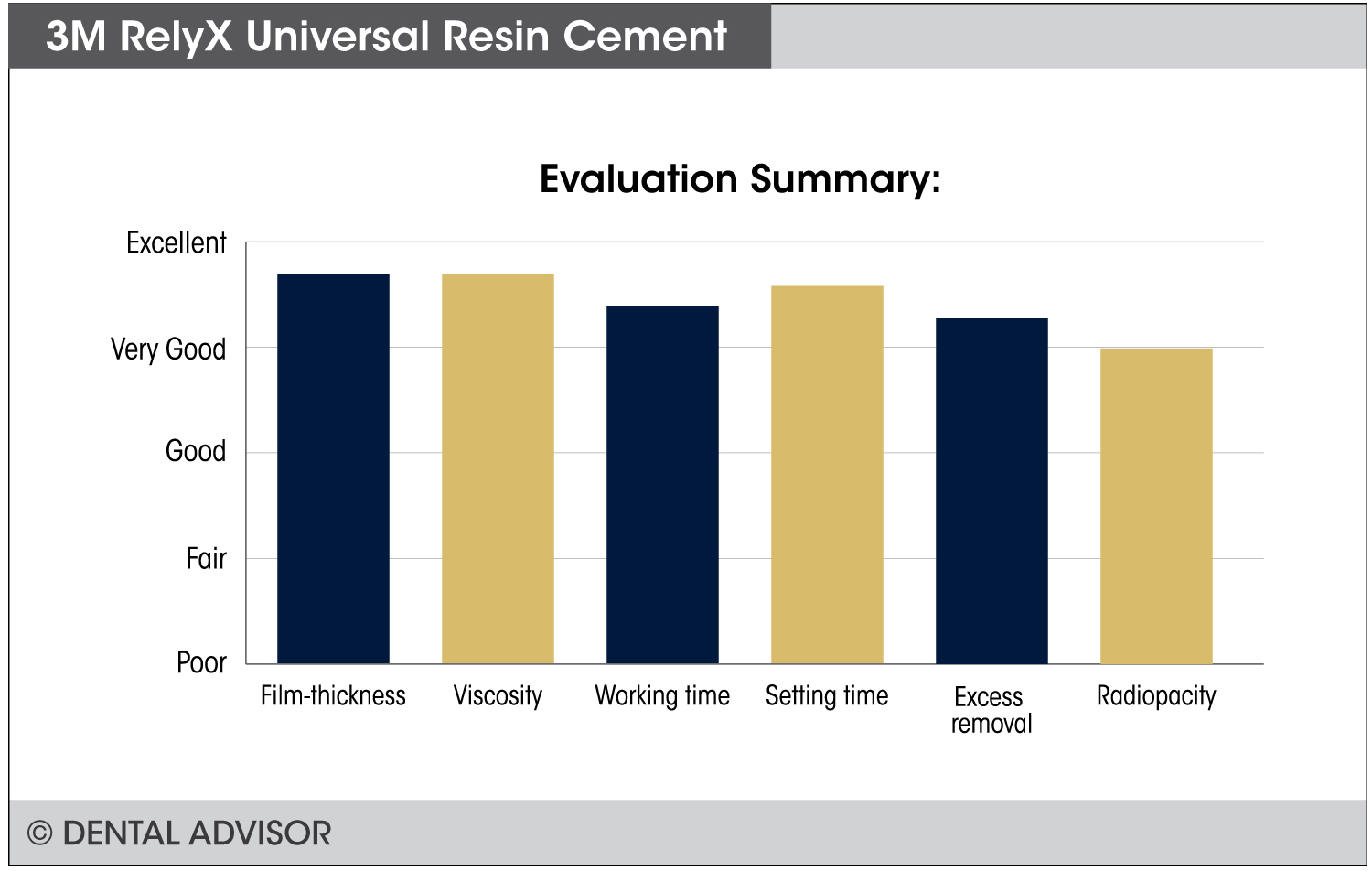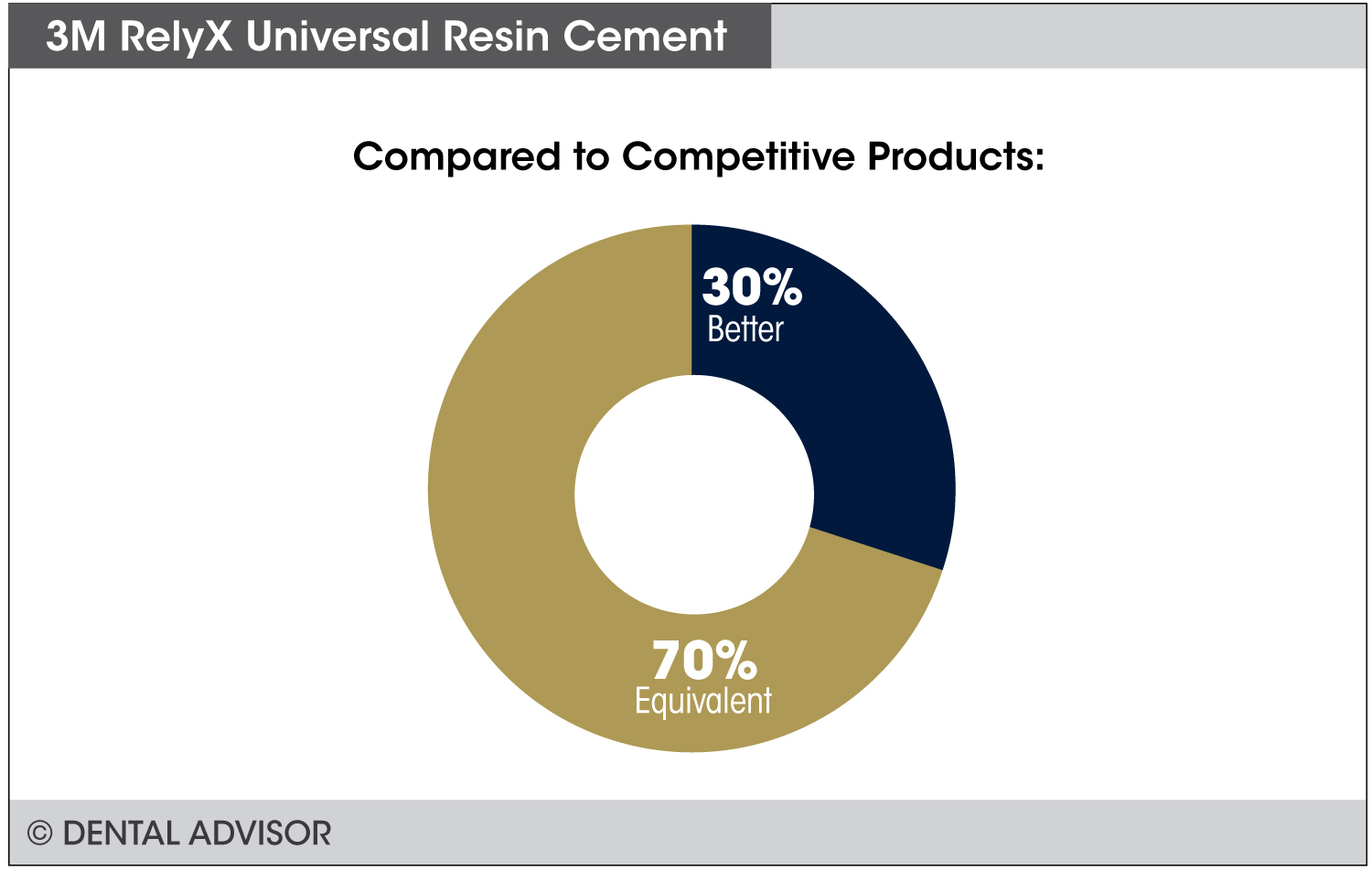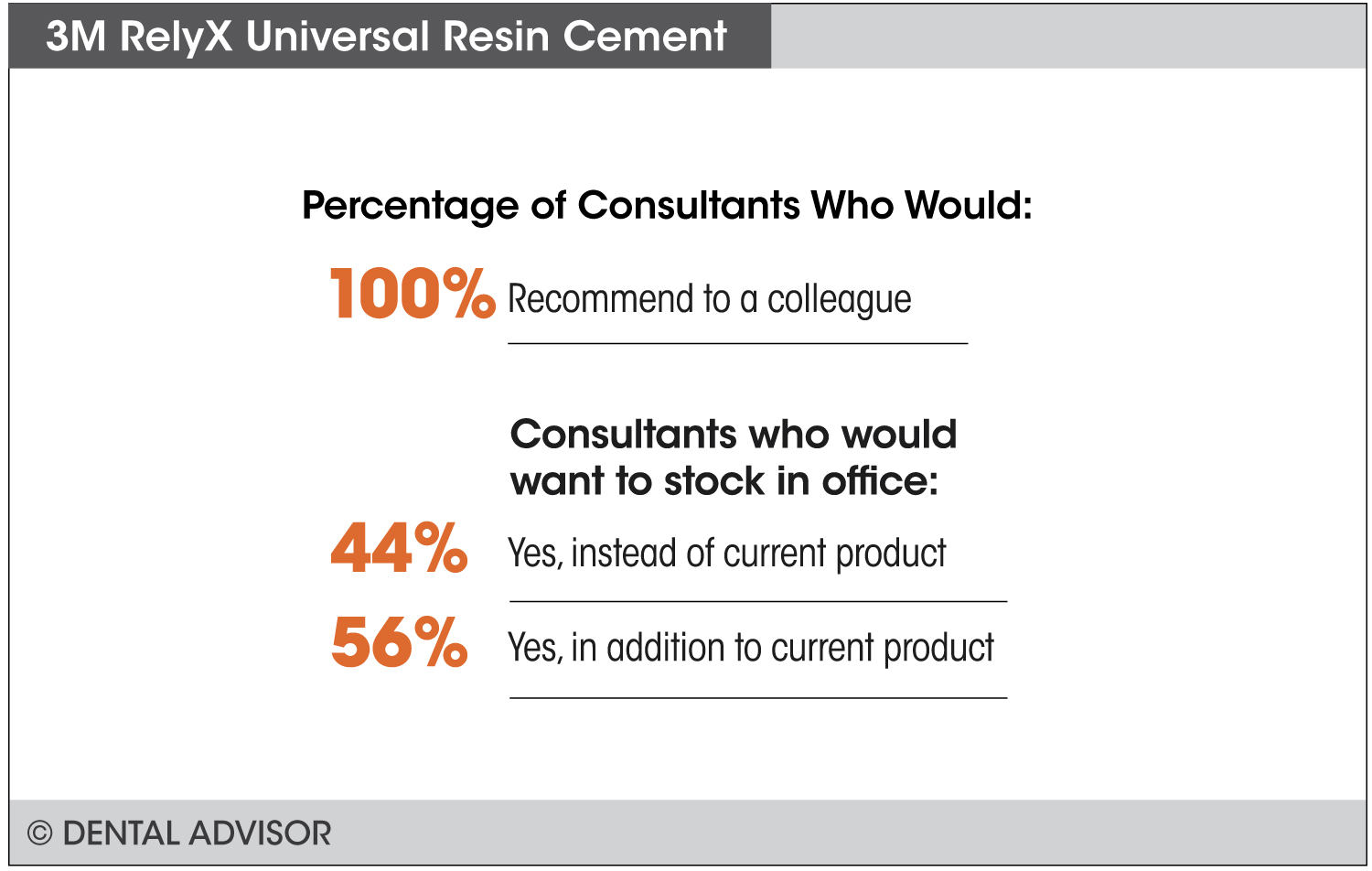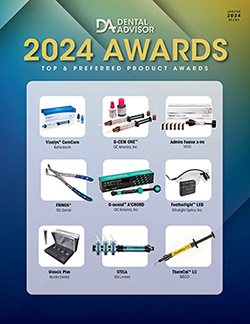Clinical Evaluations
3M RelyX Universal Resin Cement
3M Oral Care
www.mmm.com/dental
Overview
- 12 Dental Professionals
- 425 Total Uses
- 99% Clinical Rating
Evaluators’ Comments
- “The syringe is super comfortable to hold and has an indicator on the plunger to show when it is empty.”
- “It’s great to have one cement with options for for self-adhesive and adhesive bonding.”
- “The unique mixing tip allows for minimal waste.”
- “The new syringe and tip are a wonderful combination! Excellent engineering.”
- “Having one material to use for all cases is great.”
- “The 6-minute wait for self-cure was my only complaint.”
- “The choice of shades was helpful.”
Description
3M™ RelyX™ Universal Resin Cement is a dual-cure universal cement with an innovative syringe design.
- It can be used in either the adhesive or self-adhesive mode for cementation
- Kit contains 3M™ Scotchbond™ Universal Plus Adhesive for adhesive cementation
- Available in shades A1, WO, A3O, and TR, which coordinate with the 3M™ RelyX™ Try-In Pastes
- Adhesive strength can be enhanced further with the use of 35% phosphoric acid
Unique Attributes
- Redesigned tip significantly reduces wasted material in the mixing tip
- Truly a universal cement as it can be used in either Adhesive or Self-Adhesive mode and used for any substrate
Indications
Use of 3M™ RelyX™ Universal Resin Cement in Self-Adhesive Mode or Adhesive Mode with 3M™ Scotchbond™ Universal Plus Adhesive for final cementation of:
- All-ceramic, composite, or metal inlays, onlays, crowns, and bridges
- Ceramic, glass fiber-reinforced composite or metal posts, as well as screws
- All-ceramic, composite, or metal restorations on implant abutments
Use of 3M™ RelyX™ Universal Resin Cement in Adhesive Mode with 3M™ Scotchbond™ Universal Plus Adhesive for final cementation of:
- All-ceramic or metal Maryland bridges and 3-unit inlay/onlay bridges
- All-ceramic or composite veneers and occlusal veneers
Clinical Tips
- Do not allow cement to cure too much when tack curing or it will be very difficult to remove excess
- Extrude from tip slowly with light pressure
- The most difficult thing about resin cements is cleaning up interproximally. Clean interproximal areas first, whenever possible


